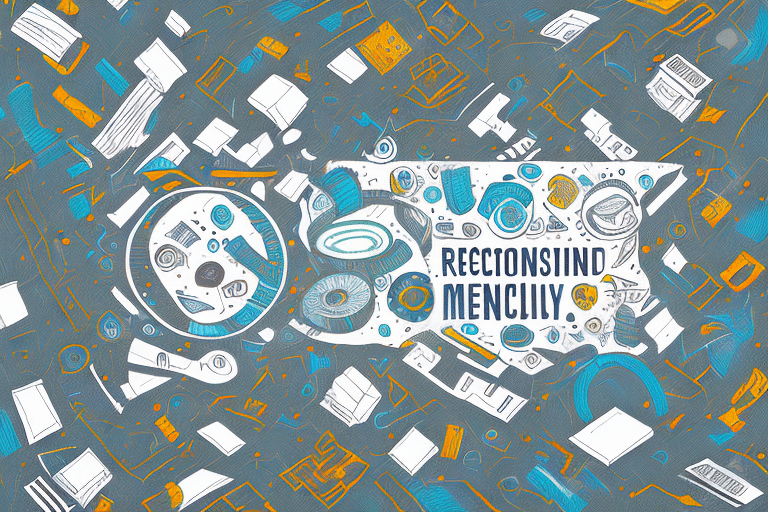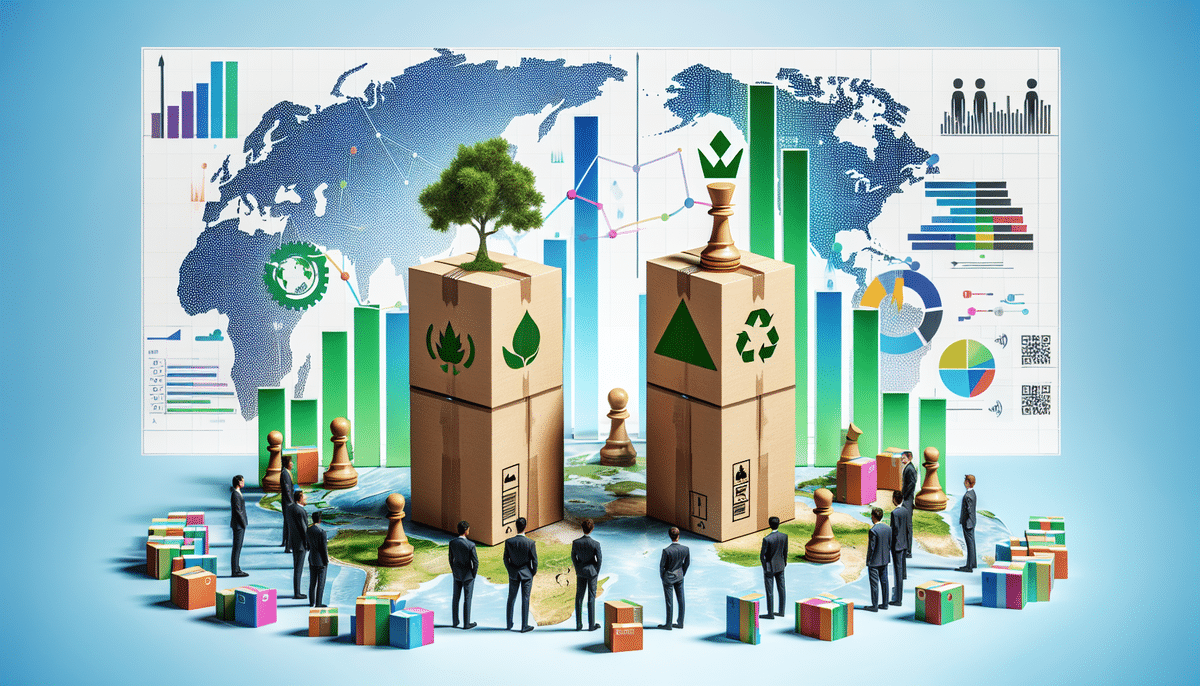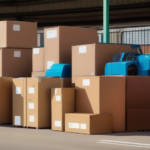The Benefits of Using Recyclable Packaging
Recyclable packaging is rapidly gaining traction as more businesses acknowledge its multifaceted benefits. From enhancing environmental sustainability and achieving cost savings to optimizing resource utilization, recyclable packaging significantly impacts both businesses and the global community positively. This comprehensive guide explores the myriad advantages of adopting recyclable packaging solutions.
Understanding Recyclable Packaging
What is Recyclable Packaging?
Recyclable packaging refers to materials designed to be reused or processed into new products after their initial use. Common recyclable materials include cardboard, paper, plastics, and metals. Effective recycling involves collecting, sorting, and removing impurities to ensure high-quality recycled materials. For a detailed overview of recyclable materials, refer to the EPA's Recycling Basics.
How Does Recyclable Packaging Work?
Once recyclable packaging is collected, it undergoes a sorting process to separate different materials. Advanced machinery and manual sorting methods are employed to ensure materials are clean and free from contaminants. The sorted materials are then processed into new products, reducing the need for virgin resources.
The Environmental Impact of Non-Recyclable Packaging
Pollution and Waste Accumulation
Non-recyclable packaging contributes significantly to pollution and environmental degradation. Materials that cannot be recycled often end up in landfills or oceans, taking hundreds of years to decompose. According to the National Geographic, over 8 million tons of plastic enter our oceans annually, harming marine life and ecosystems.
Resource Depletion and Greenhouse Gas Emissions
The production of non-recyclable packaging typically relies on non-renewable resources like fossil fuels and natural gas. This not only depletes valuable resources but also results in the emission of greenhouse gases, exacerbating climate change. The Intergovernmental Panel on Climate Change (IPCC) highlights the critical role of reducing emissions in mitigating global warming.
The Importance of Sustainable Packaging Solutions
Reducing Environmental Footprint
Adopting sustainable packaging solutions, including recyclable packaging, helps minimize environmental impact by reducing greenhouse gas emissions, conserving land and water, and protecting natural habitats. Sustainable packaging also plays a crucial role in the circular economy, promoting the reuse and recycling of materials.
Enhancing Brand Reputation
Consumers are increasingly conscious of the environmental impact of their purchases. Companies that prioritize sustainable packaging can enhance their brand reputation and attract environmentally conscious consumers. According to a Nielsen report, 73% of global consumers say they would definitely or probably change their consumption habits to reduce their environmental impact.
Achieving Cost Savings
While transitioning to sustainable packaging may involve initial investments, it often leads to long-term cost savings. Reduced waste disposal fees, lower material costs, and improved supply chain efficiency contribute to overall financial benefits. Lightweight packaging, for example, can lower transportation costs and decrease fuel consumption.
Reducing Waste and Landfill Space with Recyclable Packaging
Minimizing Landfill Usage
Recyclable packaging diverts materials from landfills, thereby preserving natural resources and reducing pollution. The Earth Day](https://www.earthday.org/earth-day-tips-stop-waste/) initiative emphasizes the importance of minimizing waste to protect our planet.
Conserving Energy
Producing new packaging materials is energy-intensive. Recycling existing materials requires significantly less energy, reducing overall energy consumption and associated greenhouse gas emissions. The U.S. Department of Energy reports that recycling aluminum saves up to 95% of the energy required to produce it from raw materials.
Economic Benefits
Recycling creates jobs within the recycling industry, bolstering local economies. Additionally, municipalities save on waste management costs, allowing resources to be allocated to other community projects. The EPA highlights the economic advantages of effective recycling programs.
Impact on Carbon Footprint
Utilizing recyclable packaging substantially reduces a business's carbon footprint by decreasing the demand for virgin materials and lowering energy consumption during production. This reduction in greenhouse gas emissions is crucial in combatting climate change and aligns with global sustainability goals.
Cost Savings and Efficiency
Lower Material and Disposal Costs
Recyclable packaging is often more cost-effective than non-recyclable alternatives. Businesses benefit from lower material costs and reduced waste disposal expenses, leading to enhanced profitability.
Supply Chain Optimization
Implementing recyclable packaging can streamline supply chain operations. For instance, lightweight packaging reduces shipping weights, resulting in lower transportation costs and improved delivery efficiency.
Consumer Behavior and Recyclable Packaging
Educating Consumers
Consumer education is vital in promoting recyclable packaging. Informing customers about the importance of recycling and providing clear instructions on how to recycle properly can significantly enhance participation rates.
Incentivizing Recycling
Businesses can encourage recycling by offering incentives such as rewards programs or discounts for customers who return used packaging. These initiatives foster a culture of sustainability and increase consumer engagement.
Innovations in Recyclable Packaging
Biodegradable Materials
Advancements in biodegradable plastics and plant-based materials like bamboo and cornstarch are revolutionizing the packaging industry. These materials break down more quickly and have a lower environmental impact compared to traditional plastics.
Smart Packaging Technologies
Smart packaging incorporates technologies such as sensors to monitor product freshness and quality. These innovations help reduce food waste by alerting consumers to products nearing expiration, thereby enhancing sustainability.
Government Regulations and Policies
Promoting Recycling through Legislation
Governments worldwide are implementing regulations to encourage the use of recyclable packaging. Policies include financial incentives for businesses that adopt recyclable materials and mandates requiring the recycling of specific packaging types.
Public Awareness Campaigns
In addition to regulatory measures, governments are launching education and awareness campaigns to promote recycling. These initiatives aim to inform the public about the benefits of recycling and how to participate effectively.
Best Practices for Implementing Recycling Programs
Comprehensive Planning and Education
Successful recycling programs require thorough planning and employee education. Providing clear guidelines on recyclable materials and offering training sessions can enhance program effectiveness.
Convenient Recycling Solutions
Making recycling easy and accessible is crucial. Placing clearly labeled recycling bins in strategic locations, such as near printers and break rooms, encourages participation and simplifies the recycling process.
Case Studies: Successful Implementation of Recyclable Packaging
Nestlé's Commitment to Recyclable Packaging
Nestlé has pledged to make all its packaging recyclable or reusable by 2025. This ambitious goal demonstrates the company's dedication to sustainability and sets a benchmark for the industry.
Patagonia's Advanced Recycling Technologies
Patagonia has developed innovative recycling technologies to create its own recyclable materials. By investing in research and development, the company ensures its packaging aligns with its environmental values.
Choosing the Right Recyclable Packaging
Evaluating Material Durability and Safety
When selecting recyclable packaging, businesses should assess the material's durability and safety to ensure it adequately protects the product while being easy to recycle.
Assessing Environmental Impact
Consider the overall environmental impact of the packaging material, including its lifecycle recyclability and the energy required for production and recycling. Opting for materials with a lower environmental footprint promotes sustainability.
Debunking Common Recycling Misconceptions
Recycling is Ineffective
A prevalent misconception is that recycling efforts are futile or that most recycled materials end up in landfills. In reality, effective recycling can significantly reduce waste and conserve resources when properly managed.
Recycling is Too Effort-Intensive
Some believe that recycling is inconvenient or time-consuming. However, with the right infrastructure and consumer education, recycling can be seamlessly integrated into daily routines, making it both easy and effective.
Looking Ahead: The Future of Sustainable Packaging
The future of sustainable packaging lies in continuous innovation and the widespread adoption of recyclable materials. As technology advances and consumer awareness grows, businesses must stay informed and committed to implementing best practices in sustainable packaging. This ongoing effort is essential for fostering a healthier planet and a more sustainable economy.



















